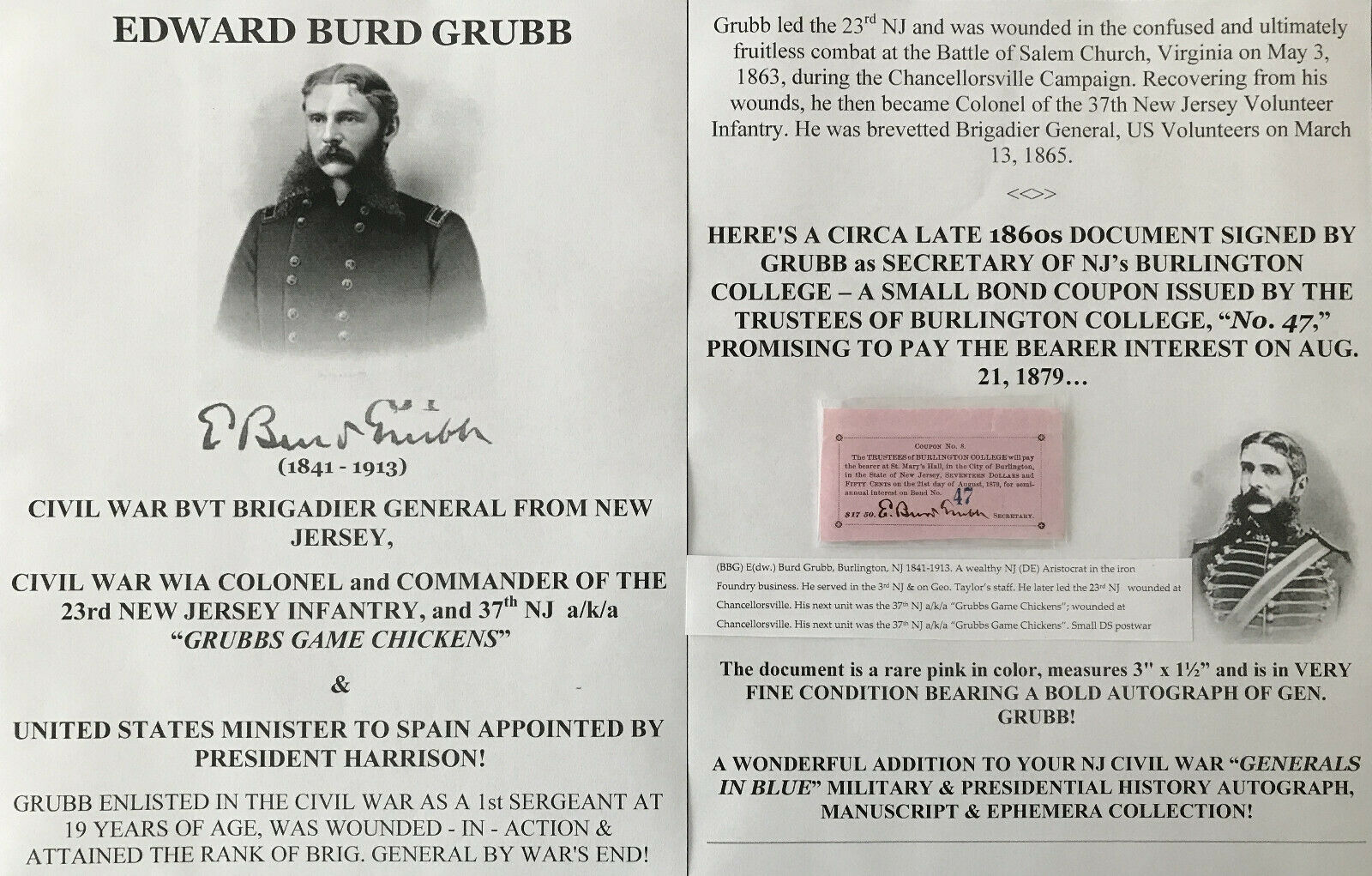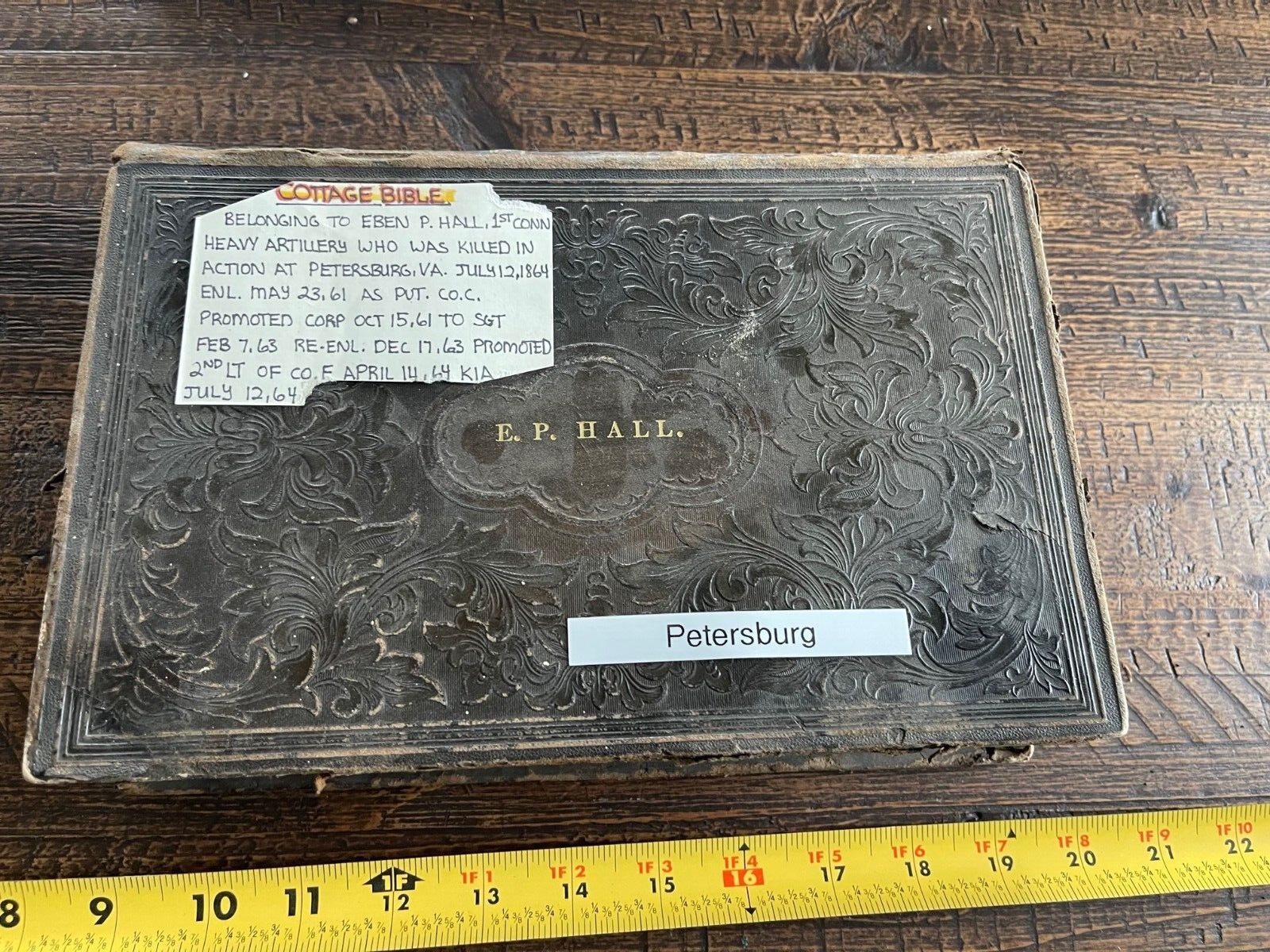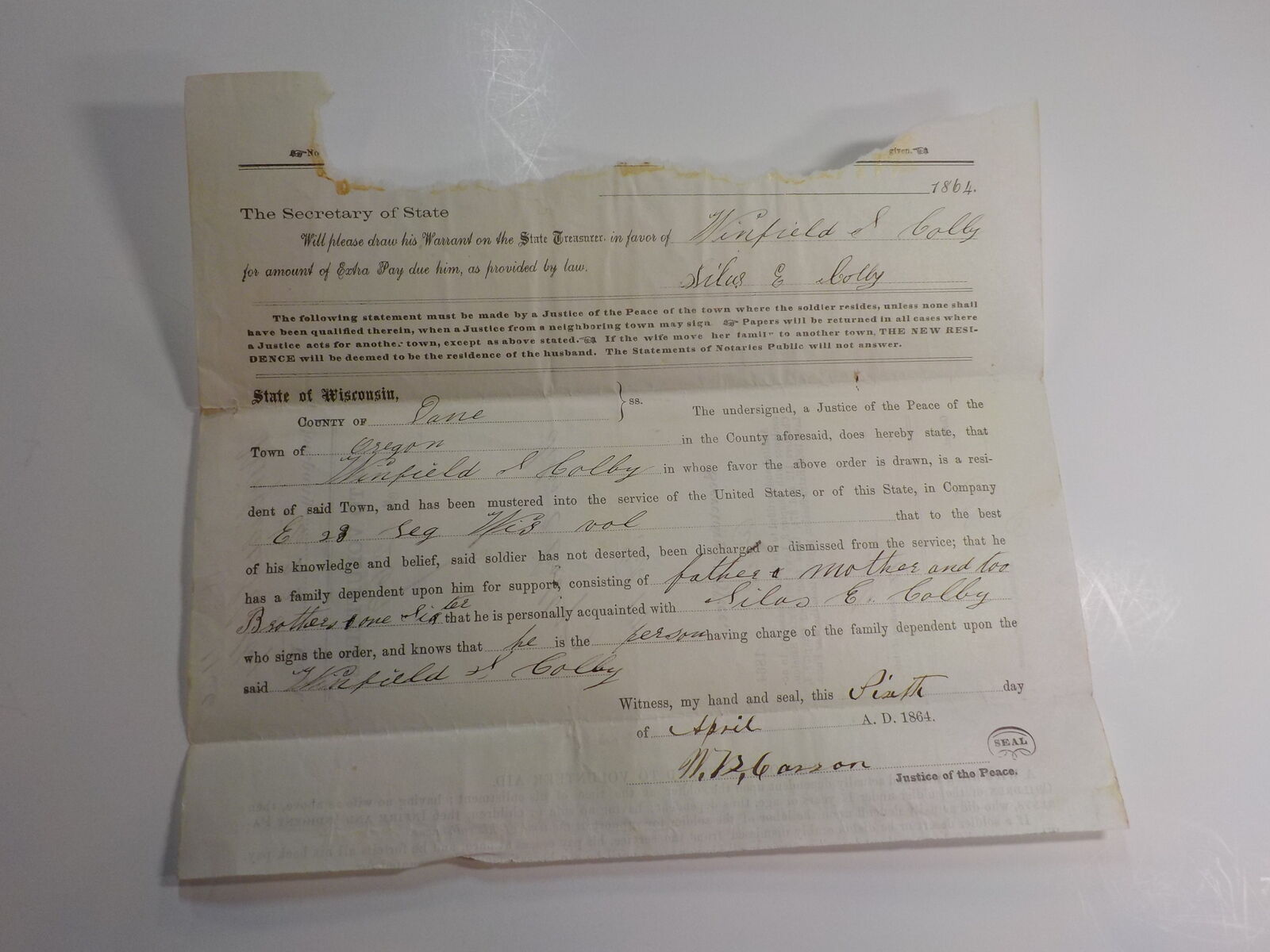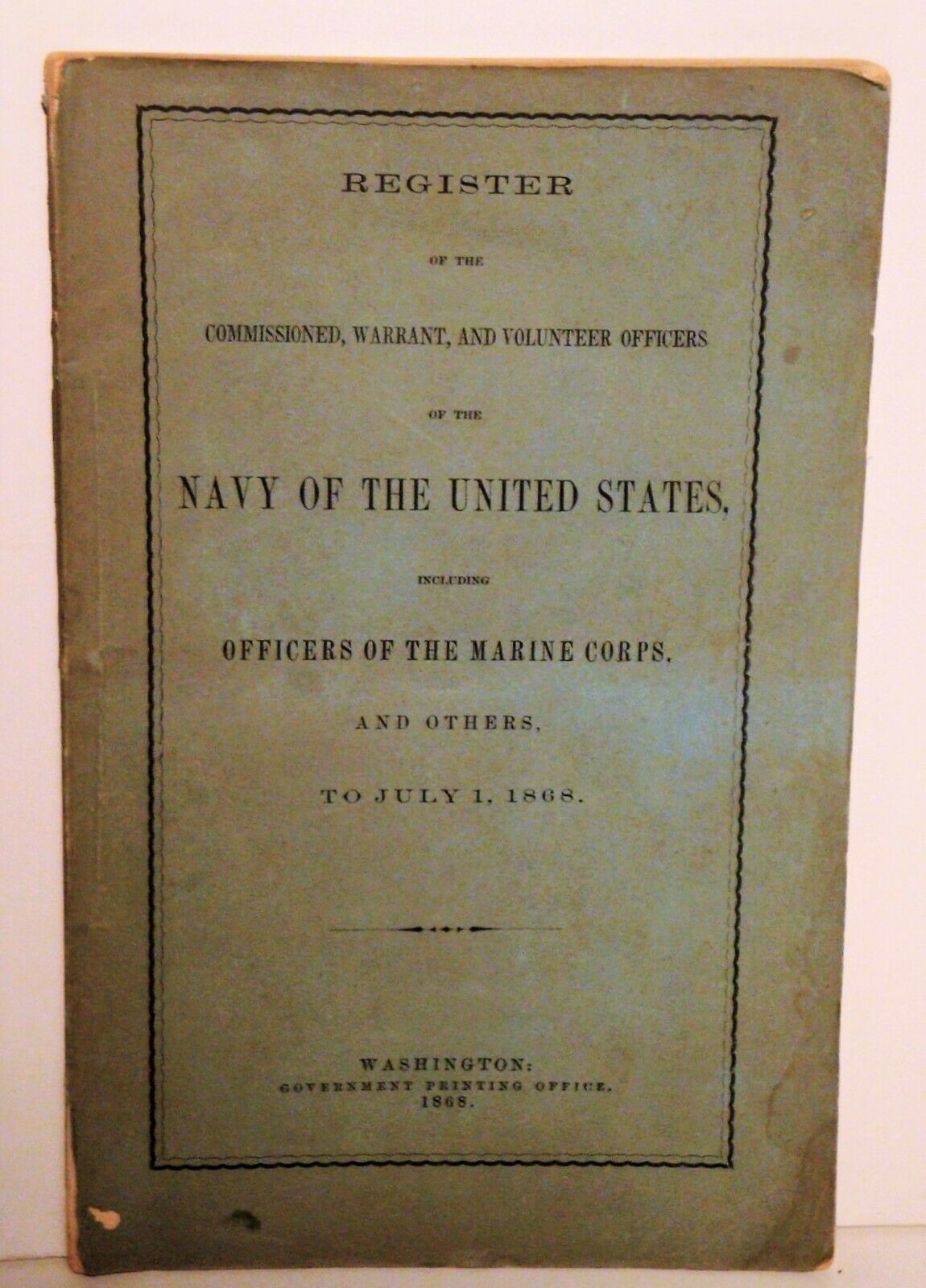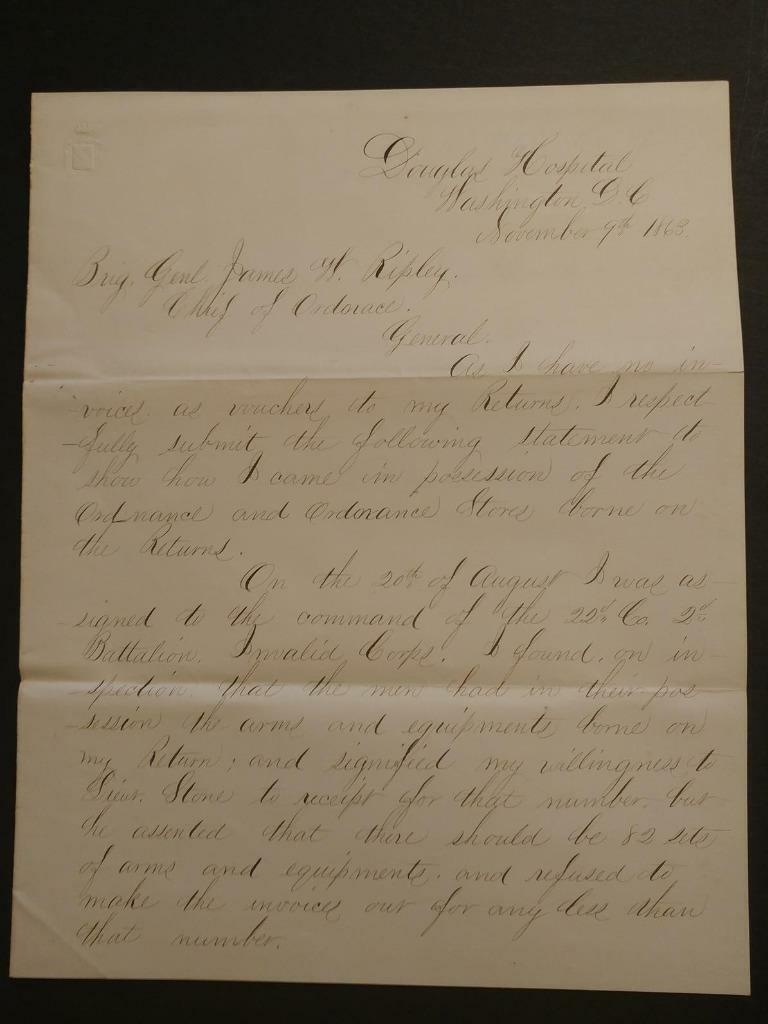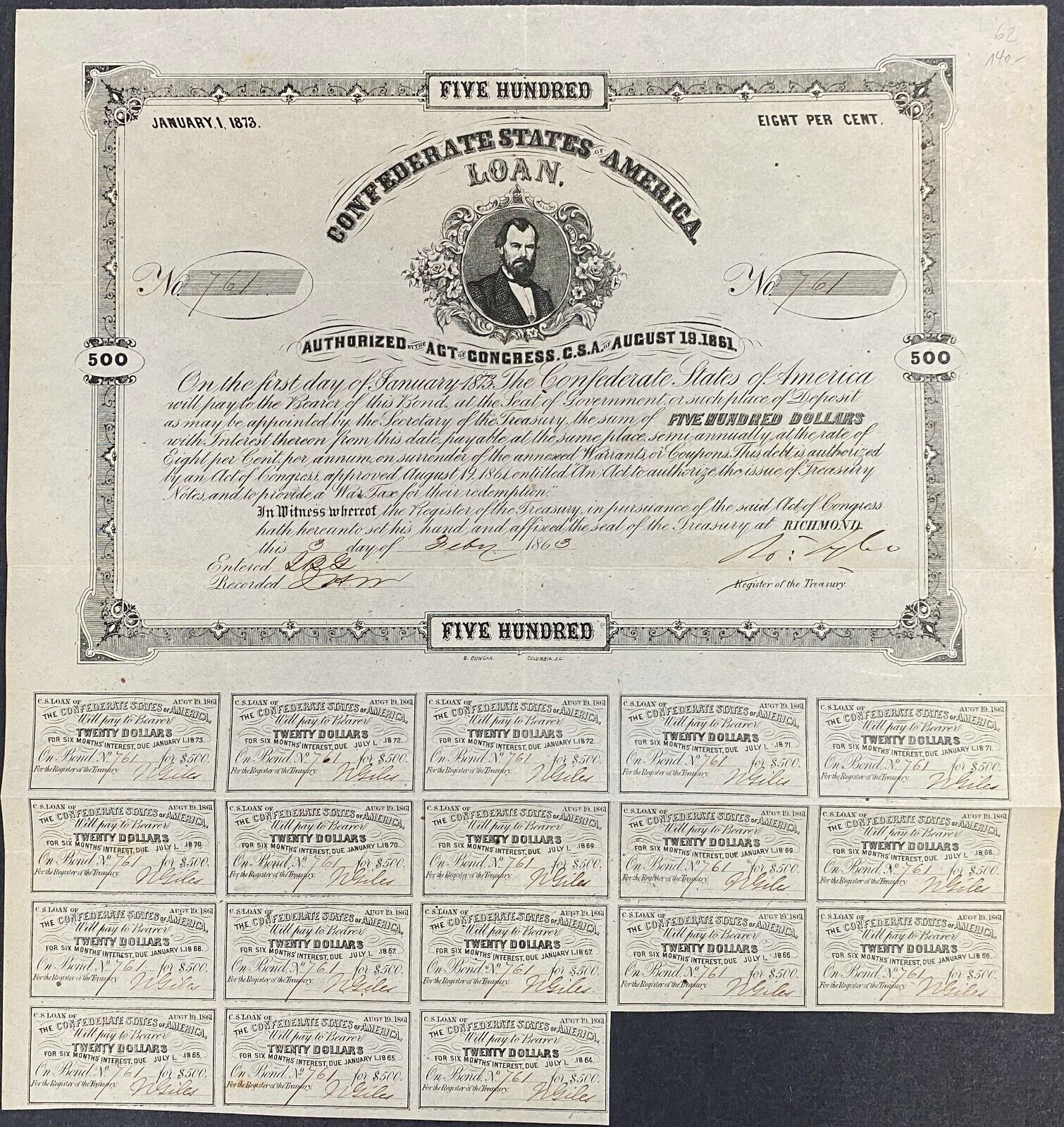-40%
CIVIL WAR GENERAL COLONEL 23rd NJ INFANTRY BURLINGTON BOND GRUBB DOCUMENT SIGNED
$ 5.27
- Description
- Size Guide
Description
EDWARD BURD GRUBB(1841 - 1913)
CIVIL WAR BVT BRIGADIER GENERAL FROM NEW JERSEY,
CIVIL WAR WIA COLONEL and COMMANDER OF THE 23rd NEW JERSEY INFANTRY, and 37
th
NJ
a/k/a “
GRUBBS GAME CHICKENS
”
&
UNITED STATES MINISTER TO SPAIN APPOINTED BY PRESIDENT HARRISON!
GRUBB ENLISTED IN THE CIVIL WAR AS A 1st SERGEANT AT 19 YEARS OF AGE, WAS WOUNDED - IN - ACTION & ATTAINED THE RANK OF BRIG. GENERAL BY WAR'S END!
Grubb led the 23
rd
NJ and was wounded in the confused and ultimately fruitless combat at the Battle of Salem Church, Virginia on May 3, 1863, during the Chancellorsville Campaign. Recovering from his wounds, he then became Colonel of the 37th New Jersey Volunteer Infantry. He was brevetted Brigadier General, US Volunteers on March 13, 1865.
<<>>
HERE'S A CIRCA LATE
1860s
DOCUMENT SIGNED BY GRUBB as SECRETARY OF NJ’s BURLINGTON COLLEGE – A SMALL BOND COUPON ISSUED BY THE TRUSTEES OF BURLINGTON COLLEGE, “
No. 47
,” PROMISING TO PAY THE BEARER INTEREST ON AUG. 21, 1879…
The document is a rare pink in color, measures 3" x 1½” and is in VERY FINE CONDITION BEARING A BOLD AUTOGRAPH OF GEN. GRUBB!
A WONDERFUL ADDITION TO YOUR NJ CIVIL WAR “
GENERALS IN BLUE
” MILITARY & PRESIDENTIAL HISTORY AUTOGRAPH, MANUSCRIPT & EPHEMERA COLLECTION!
BIOGRAPHICAL SKETCH OF GEN. GRUBB
Edward Burd Grubb, Jr.
(known as E. Burd Grubb) (November 13, 1841 – July 7, 1913) was a Union Army officer in the American Civil War. He served in three regiments, commanded two of them, and became a brevet Brigadier General of Volunteers. He was also a noted foundryman and business owner, as well as a politician and diplomat.
Civil War
Grubb was born in Burlington, New Jersey, to Cornwall ore mine owner Edward B. Grubb and his wife Euphemia. He was educated at Burlington College and graduated in 1860, just five months before Abraham Lincoln was elected as President.
He was only 19 years old when he enlisted in May 1861 in the 3rd New Jersey Volunteer Infantry. Commissioned as a first lieutenant, he served as an aide to Brig. Gen. George W. Taylor during the 1862 Peninsula Campaign and the August 1862 Northern Virginia Campaign that culminated in the Second Battle of Bull Run. In November 1862, he was promoted to Major, and was transferred to the 23rd New Jersey Volunteer Infantry, a nine-month enlistment unit made up of men from his hometown of Burlington and various parts of Burlington County.
In March 1863, despite his youth, he was promoted to Colonel and commander of the regiment when its previous leader, Col. Henry O. Ryerson, left to take command of the 10th New Jersey Volunteer Infantry. Colonel Grubb led his regiment as it participated in his brigade's assault on Confederate positions at Salem Church during the May 1863 Battle of Chancellorsville. He was wounded in action, and was mustered out when his regiment's enlistment expired by law in June 1863.
After a year spent in recruitment and recruit training, he was commissioned as colonel and commander of the 37th New Jersey Volunteer Infantry, a 100-day enlistment unit. The new regiment then served in the trenches of Petersburg, Virginia, and in garrison duty until it was mustered out in October 1864. Colonel Grubb experienced tragedy during this time, as his younger brother Parker Grubb, serving as the 37th New Jersey's regimental Adjutant, died of disease during the regiment's service.
In recognition of his service, Edward Burd Grubb received a brevet promotion to Brigadier General, United States Volunteers on March 13, 1865, for "gallant and meritorious services during the war".
Postbellum
After mustering out later in 1865, Grubb returned to Burlington and established himself as a prominent iron manufacturer, taking over the iron business began by his father. In 1868, Edward married Elizabeth Wadsworth Van Rensselaer, daughter of an important area family. He was elected to the Burlington City Council and served as its president for two years.
He stayed active in veterans affairs, and served for 18 years as the ceremonial captain of the First Troop Philadelphia City Cavalry (a social organization that had once been George Washington's personal bodyguard during the American Revolution. He was also a colonel in the New Jersey National Guard.
Grubb gained considerable political clout, parlaying it to an appointment as United States Minister to Spain (serving from 1890 to 1892). In 1889, Republicans nominated for Grubb for Governor, hoping that the war hero could beat Leon Abbett, a popular former Governor. Abbett had a easy time beating the political novice, but the liquor lobby did not take any chances. For example, more votes were counted in Jersey City's Irish wards than registered voters. Sixty-nine election workers were convicted of fraud and sent to prison. However, Abbet was able to use the scandal to his advantage by taking up Grubb's call for ballot reform.
Also that year, Benjamin Harrison had been inaugurated as President and selected the Grubbs' friend, James G. Blaine as Secretary of State. Blaine arranged for the General to be one of Harrison's seven appointees to the 1890 Board of Visitors to West Point Military Academy; Grubb was elected Vice President. Among other things Grubb's committee suggested the purchase of the Academy's first Hotchkiss gun. Blaine then arranged for Edward to be appointed as Ambassador to Spain. During his term, Grubb negotiated a trade reciprocity treaty. In 1892, he resigned and returned to New Jersey.
The General remained active and left the Republican Party to become a reformer. Grubb lost an election for Congress in 1908. and actively campaigned for Woodrow Wilson when he ran for Governor two years later. Wilson and Grubb became close and the Governor often stayed at the General's home on the river
While in Spain, Burd met Violet Sopwith (1865 - 1958), the daughter of an English mining engineer working in Spain. Violet's younger brother was Thomas Sopwith who became the famous aviation pioneer. Burd and Violet married before their return to New Jersey and had three children, but one died young. Their son, Edward Burd Grubb III was the President of the New York Curb Exchange during the critical period after the creation of the SEC.
Grubb made national news in 1908-1909 after meeting the commander of the 8th Alabama Regiment. Two units that once met as enemies at Salem Church, met again as friends at Burd's Grassmere estate.
In 1911, Grubb lost his fortune in a bad investment and was appointed by then Governor Wilson as Superintendent of the New Jersey Home for Disabled Soldiers in Kearney, New Jersey. He died in Newark, New Jersey, and was buried in Saint Mary's Episcopal Churchyard in Burlington. Violet moved back to "Grubb Cottage" then owned by the General's brother. During W.W.I, Violet chaired the British Emergency Aid Committee in Philadelphia and later retired to Maryland to live with her daughter.
He died in Newark, New Jersey, and was buried in Saint Mary's Episcopal Churchyard in Burlington, New Jersey.
His residence in Burlington still stands today along the banks of the Delaware River, with a plaque noting it as the Grubb family homestead.
HISTORY OF THE NEW JERSEY TWENTY-THIRD INFANTRY
Twenty-third Infantry.--Cols., John S. Cox, Henry 0. Ryerson, E. Burd Grubb; Lieut.-Cols., George C. Brown, Francis W. Milnor; Majs., Alfred Thompson, William J. Parmentier. This regiment was raised in the summer and fall of 1862 and was mustered into the Federal service at Beverly on Sept. 13, Co. A from the city and township of Burlington being the first to reach the rendezvous, on Aug. 25, Co. B of Bordentown mustering the same evening. Leaving Beverly on Sept. 24, the regiment proceeded to Washington, going into camp on East Capitol hill, but in a few days afterward moved to Frederick City, Md. There it remained until Oct. 8, when it started for Bakersville to join the 1st N. J. brigade, with which it was ever after identified. It participated in the battle of Fredericksburg and lost in that engagement 3 officers and 57 men, killed or wounded. At Chancellorsville and Salem Church it also performed noble service and continued in the field until the expiration of its term of enlistment, when it was ordered to return to New Jersey for discharge. While at Beverly, awaiting muster out, information was received of the invasion of Pennsylvania by Gen. Lee with the Confederate army in strength. The command was immediately tendered to the governor and accepted, and at once proceeded to Harrisburg, the threatened point. It remained in that vicinity until the danger had passed, when it returned to the state and was mustered out at Beverly, N. J., June 27, 1863. The total strength of the regiment was 1,035, and it lost during its term of service, by resignation 18, by discharge 80, by promotion 31, by transfer 4, by death 84, by desertion 10, by dismissal 1, mustered out, 807.
Source:
The Union Army, vol. 3
****************************************************
Chancellorsville, VA after battle report written by Colonel Grubb:
No. 214.
Report of Col. E. Burd Grubb, Twenty-third New Jersey Infantry.
HDQRS. TWENTY-THIRD NEW JERSEY VOLUNTEERS, May 10, 1863.
SIR: In compliance with orders from brigade headquarters, I have the honor to report that my regiment left camp, near White Oak Church, at 3 p.m. April 28, and bivouacked upon the bank of the Rappahannock, which we crossed at daylight on the morning of the 29th.
My regiment was deployed on the front at sunrise on the 29th, relieving the One hundred and twenty-first New York.
On Thursday the regiment was relieved.
Nothing special occurred on Friday or Saturday.
On Sunday (May 3) was again ordered to the front, and had 1 officer and 2 men wounded from shells.
About noon was ordered to follow the brigade, and marched through Fredericksburg and about 3 miles out on the Plank road, when I was again ordered to the front to support the Second New Jersey Volunteers, skirmishing. As soon as my regiment emerged from the woods, I was opened upon by a battery posted in the road, the second shot from which wounded an officer and killed a man. Under the immediate orders of Gen. Brooks, I advanced, keeping but a few places in rear of the skirmishers, and came upon the enemy, posted in thick woods and in a brick church. The nature of the ground was such that my line was somewhat broken up on entering the woods. Nevertheless my men engaged the enemy with great spirit.
Together with Col. Upton, of the One hundred and twenty-first New York, immediately upon my left, I made several efforts to derive the enemy from their position in and around the church, but (such was the severity of their fire) without success, and several regiments upon my left giving way, I was compelled to fall back. Upon emerging from the woods, the fire was exceedingly deadly, and some confusion ensued, but I succeeded in reforming in rear of a battery some 500 yards from the woods.
My regiment was not actively engaged again, and the next evening recrossed the river at Banks' Ford.
My officers all behaved nobly, but I desire to mention as conspicuous for their coolness and gallantry Maj. W. J. Parmentier and Adjutant Dawns; also First Lieut. F. L. Taylor, Cmdg. Company H, who exhibited the most brilliant courage, leading his men several times to the front under a most galling fire. Corporal Fenton, Company B, who, in the absence of the color-sergeant, bore the national colors, also acted with the utmost coolness and courage.
Very respectfully, your obedient servant,
E. BURD GRUBB,
Col. Twenty-third New Jersey Volunteers.
HISTORY OF THE NEW JERSEY THIRTY-SEVENTH INFANTRY (100 DAYS)
Thirty-seventh Infantry.-Col., E. Burd Grubb; Lieut.- Col., John S. Barlow; Maj., John Danforth. On May 16, 1864, Gov Parker issued a proclamation calling, "by desire of the president," the militia of the state into active service for the period of 100 days, to date from muster into the United States service, to be armed, equipped, and paid as other United States volunteers, "to serve in fortifications or wherever their services may be required, within or without the state." No bounty was to be given, nor were even their services to be credited upon any draft. These troops were to be infantry exclusively, and the governor urged that at least five regiments might be raised and forwarded with all convenient speed. In accordance with this proclamation, recruiting began without delay, and the nuclei of two regiments were speedily established-one in the southern part of the state to be called the 37th, to be commanded by E. Burd Grubb, of Burlington, a gallant and dashing soldier. It was thought advisable that the different militia and rifle corps regiments should, if possible, embrace this opportunity to go into the movement in a body, thus preserving their regimental organizations and preventing the many delays incident to and consequent upon the organization and officering of new regiments. This expectation, however, was not realized. Recruiting becoming languid, local bounties were offered by different cities, but notwithstanding that, and every other inducement offered, it began to be apparent that neither of the two regiments would be enabled to fill its ranks, and consolidation must be effected. This was accordingly done at Camp Delaware, Trenton, and on June 23 the consolidated regiment, under the name of the 37th N. J. volunteers, was mustered into the service of the United States. It left Trenton on June 28, 700 strong, direct for Baltimore, where steamer was taken for City Point. It furnished detachments for fatigue duty of various kinds such as unloading vessels, working on fortifications, etc., being assigned to Berry's brigade, 3d division, 10th army corps, and brigaded with other 100-days regiments from Ohio. The regiment took an active part in the operations before Petersburg from Aug. 28 to Sept. 26, and was mustered out Oct. 1, 1864.
Source:
The Union Army, vol. 3
I am a proud member of the Universal Autograph Collectors Club (UACC), The Ephemera Society of America, the Manuscript Society and the American Political Items Collectors (APIC) (member name: John Lissandrello). I subscribe to each organizations' code of ethics and authenticity is guaranteed. ~Providing quality service and historical memorabilia online for over 20 years.~
WE ONLY SELL GENUINE ITEMS, i.e., NO REPRODUCTIONS, FAKES OR COPIES!
